7 start with L start with L
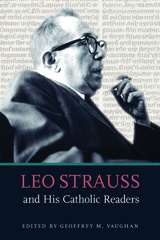
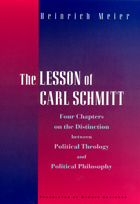
Relating this religious dimension to Schmitt's support for National Socialism and his continuing anti-Semitism, Meier compels the reader to come to terms with the irreconcilable differences between political theology and political philosophy. His book will give pause to those who have tended to gloss over the troubling aspects of some of Schmitt's ideas.
With editions in German, French, Italian, and now English, Meier's two books on Schmitt have dramatically reoriented the international debate about Carl Schmitt and his significance for twentieth-century political thought.
"Standing far above the rest . . . is Heinrich Meier's new study, Die Lehre Carl Schmitts, which covers all of Schmitt's writings. . . . Meier's work has forced everyone to take a second look at the assumptions underlying Schmitt's better-known writings and reconsider some that have been ignored."—Mark Lilla, reviewing the German edition in The New York Review of Books
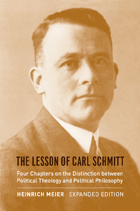
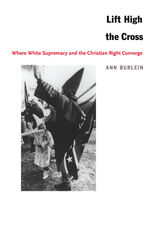
Arguing that today’s right engenders its popularity not by overt bigotry or hatred but by focusing on people’s hopes for their children, Burlein finds a politics of grief at the heart of such rhetoric. While demonstrating how religious symbols, rituals, texts, and practices shape people’s memories and their investment in society, she shows how Peters and Dobson each construct countermemories for their followers that reframe their histories and identities—as well as their worlds—by reversing mainstream perspectives in ways that counter existing power relations. By employing the techniques of niche marketing, the politics of scandal, and the transformation of political issues into “gut issues” and by remasculinizing the body politic, Burlein shows, such groups are able to move people into their realm of influence without requiring them to agree with all their philosophical, doctrinal, or political positions.
Lift High the Cross will appeal to students and scholars of religion, American cultural studies, women’s studies, sociology, and gay and lesbian studies, as well as to non-specialists interested in American politics and, specifically, the right.
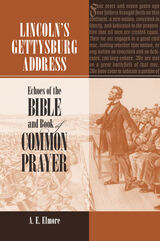
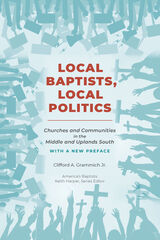
This provocative book explores the political views and actions of religious adherents who claim to base their faith on a literal interpretation of the Bible. Focusing on several small Baptist sects scattered throughout the middle and uplands South, Clifford Grammich finds that these groups are often highly engaged politically at the local level. He thus challenges the traditional view of these Baptists as politically aloof, concerned only with matters of faith and personal conduct.
Grammich shows that the politics arising from these groups’ religious beliefs are not those of any consistent, pervasive ideology. Rather, he argues, such politics more often reflect a series of adaptations to local circumstances. Among the sects that he studies, there is a strong emphasis on the local authority to interpet the Bible and, thus, to shape religious commands to very specific conditions. Beyond the broad concerns of preserving the traditional family and curbing excessive worldliness, these Baptists are free to adapt their theology to meet their particular needs—and can often do so more readily than those belonging to more hierarchical churches. Since these people are typically more rural, more southern, less educated, and less affluent than most Americans, the author notes, they can face special problems in dealing with modernity—problems that their religion helps them address.
The book includes two case studies that show in depth both the possiblities and limitations of politics within these groups. In a local labor struggle in Tennessee, Baptist sectarians were able to generate more religious support for a United Mine Workers local than was offered by the usual supporters of organized labor in other churches. On the other hand, in an environmental conflict in Kentucky, these Baptists’ traditional community concerns inhibited their participation in a broader reform movement.
Relating the beliefs and actions of the “local Baptists” to various larger themes—including those of cultural traditionalism, economic populism, and increasing affluence—Grammich offers a valuable study of the complex ways in which religious faith can affect political involvement. His book will effect a new understanding of American fundamentalism itself.
The Author: Clifford A. Grammich Jr. is director of research at Heartland Center, a social research institute in Hammond, Indiana.
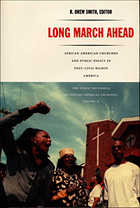
Long March Ahead emphasizes the need for African American churches to complement the excellent work they do in implementing policies set by others by getting more involved in shaping public policy. The contributors explore the efficacy of different means of public policy advocacy and social service delivery, including faith-based initiatives. At the same time, they draw attention to trends that have constrained political involvement by African American churches: the increased professionalization of policy advocacy and lobbying, the underdevelopment of church organizational structures devoted to policy work, and tensions between religious imperatives and political activism. Long March Ahead takes an important look at the political role of African American churches after the great policy achievements of the civil rights era.
Contributors
Cathy J. Cohen
Megan McLaughlin
Columba Aham Nnorum
Michael Leo Owens
Desiree Pedescleaux
Barbara D. Savage
R. Drew Smith
Emilie Townes
Christopher Winship
READERS
Browse our collection.
PUBLISHERS
See BiblioVault's publisher services.
STUDENT SERVICES
Files for college accessibility offices.
UChicago Accessibility Resources
home | accessibility | search | about | contact us
BiblioVault ® 2001 - 2024
The University of Chicago Press









